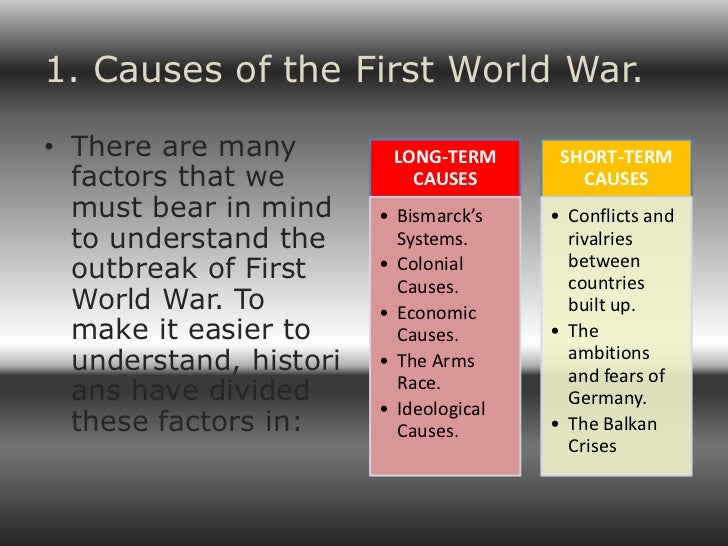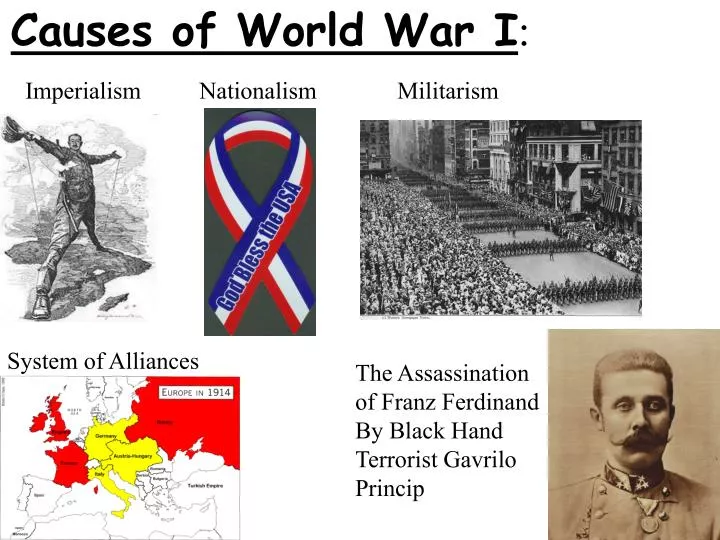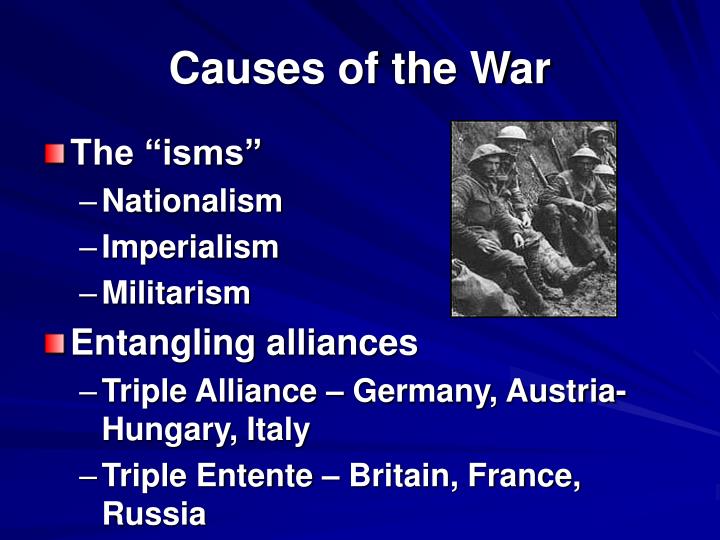
The First World War, also known as the Great War, began in 1914 and lasted until 1918. It was a global conflict that involved many of the world's major powers, divided into two opposing alliances. The war had a profound impact on the world and was the catalyst for many significant events that followed.
Imperialism
Imperialism was one of the primary causes of the First World War. At the time, many European countries were competing for power and territory in various parts of the world. This led to tension and conflict, as countries sought to expand their empires and gain more control over resources and markets.
Alliances

Alliances were another significant cause of the First World War. The major powers of Europe had formed alliances with each other, which meant that if one country went to war, the others would be obliged to join in. When Austria-Hungary declared war on Serbia in 1914, the alliances were triggered, and the conflict spread rapidly across Europe.
Militarism
/105515-causes-that-led-to-world-war-i-5b46567e46e0fb0037cca31b.png)
Militarism was also a contributing factor to the outbreak of the First World War. Many countries had built up their armies and weapons in preparation for war, and there was a general sense of tension and fear among the nations of Europe. This created a dangerous atmosphere that made conflict more likely.
Nationalism

Nationalism played a role in the First World War as well. Many people in Europe felt a strong sense of loyalty and devotion to their country, which sometimes led to hostility and aggression towards other nations. This made it more difficult to resolve conflicts peacefully and contributed to the outbreak of war.
The Assassination of Archduke Franz Ferdinand

The assassination of Archduke Franz Ferdinand, heir to the Austro-Hungarian throne, was the immediate trigger for the First World War. The assassination, carried out by a Serbian nationalist, led to a diplomatic crisis between Austria-Hungary and Serbia, which quickly escalated into war.
Conclusion
The causes of the First World War were complex and multifaceted. Imperialism, alliances, militarism, nationalism, and the assassination of Archduke Franz Ferdinand all played a role in the outbreak of the conflict. The war had a profound impact on the world and set the stage for many significant events that followed.